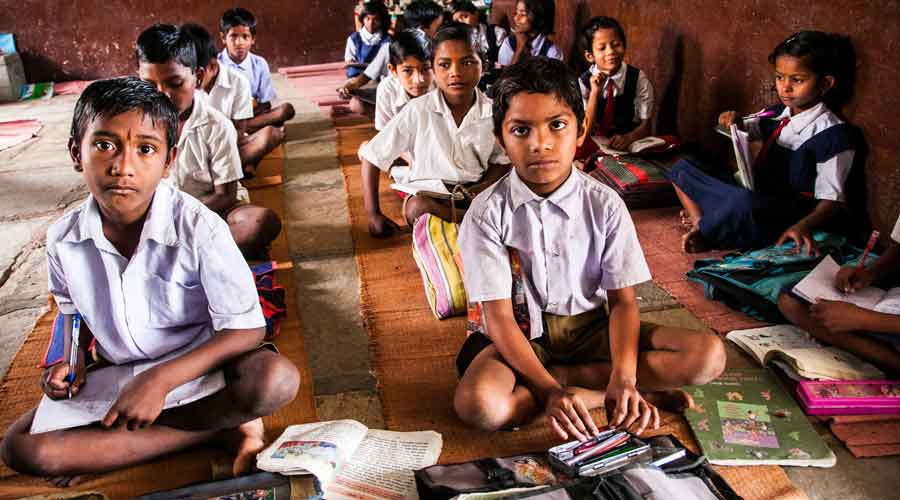The erosion of the practice of going to school is leading to a loss in learning among a section of children that could be irreversible, fear several teachers who work with children from underprivileged homes.
These children have had practically no access to online classes for over 17 months.
Schools have been shut since March 2020 as a precaution against Covid.
Many children in districts are seen in the fields or taking cattle for grazing. Their parents fret about loss of work and cannot focus on the education of the children anymore, said those who closely observe them.
Going to school ensured a routine in the lives of the children and created “an atmosphere of learning”, which is absent in most of their homes, said an NGO worker.
Teachers in Kolkata and the suburbs have noticed a defiance and disengagement among some of the girls and boys, which they think stems from the long absence from school. The classroom gives children a space to think, explore and also learn.
Some of the children have forgotten how to write, said teachers.
“Most of these children are first generation learners. Before the pandemic, when they went to school, they would struggle but still were forced to read and write. But now there is no such compulsion and their writing has suffered immensely,” said Tanmoy Patra, a mathematics teacher who runs an education centre in Howrah.
Patra said he had asked a group of Class VI students at his centre to write an essay in Bengali about the road outside their house.
“They struggled to write and could barely complete a few sentences. The sentence construction was incorrect and there was no thought in what they were writing, making it clear that their imagination had also been stunted,” said Patra.
At an online programme on Sunday, joining from Boston, Nobel laureate Amartya Sen had said creating the right atmosphere for learning and acquiring knowledge was paramount at a time like this, when in-person classes were suspended.
A medical officer at a primary healthcare centre in Gadardihi village, around 25km from Barjora, in Bankura, said she had noticed children running away in fear when asked about studies.
For example, a Class V student when asked the table of 13 was completely blank.
“They have withdrawn from education. A school environment enhances their interest in studies and they do not see it as a load, it is something that they want to do. But these children who have been deprived of both online and offline education have suffered,” said medical officer Benazir Sultana at the online programme.
Sultana said many of the parents had no choice but to set aside their children’s education because they were more worried about earning for the day to feed their families.
A headmaster in Murshidabad said the parents of these children were happy that the student was getting promoted to the next class.
“Most of the parents cannot read or write and when they see that their child is promoted to the next class, they feel that is enough. They do not realise that the child is learning nothing as their learning is completely dependent on school,” said Mohammad Jahangir Alam, the headmaster of Laskarpur High School.
He said that barely 10 to 15 per cent of the students attended online classes from VIII to XII in his school. The percentage is slightly better in the science stream of Classes XI and XII.
“Whatever they had learnt they have forgotten and we fear the irreversible loss in time could lead to an irreversible loss in learning, especially for those students who have dropped out of education because of this gap,” said Alam.
At the Howrah centre, Patra said he was still teaching multiplication and division sums from Classes IV and V to students of Classes VI and VII. “So that when they join school, they are able to follow something,” he said.
“In normal circumstances, students are introduced to the unitary method and basic algebra in Classes VI and VII but that is practically impossible now,” he added.
Teachers who handle children closer to the city spoke of a “change in the attitude” of children “bordering on defiance”.
“There is a kind of defiance in some children that they could get away without school for the last one and half years,” said Manjusmita Bagchi of NGO Ek Tara.
